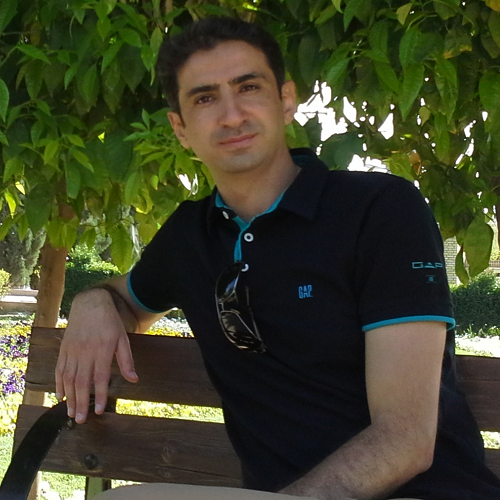Kamal Heidari

Thesis title
Looking into the Impact of Spaced Vs. Massed Practices and Deliberate Vs. Incidental Approaches on Learning English Idioms across Different Proficiency Levels
Supervisors
A/Prof Anna Siyanova and A/Prof Irina Elgort
Abstract
Acquisition of Multi-Word Expressions (MWEs), in general, and idioms, in particular, is important in that they have been recognized as one important aspect of English language competence. Unlike single words, which have widely been studied, and despite the growing number of studies on MWEs in recent years, they are still in early stages of investigation especially in terms of their teaching methods. There is still limited understanding about what approaches can help learners to learn idioms more effectively.
One factor that has been found to affect single-word vocabulary is spacing. However, the effect of spacing schedules (i.e., spaced versus massed) on MWEs, especially idioms learning, is still unknown. Furthermore, two commonly-used approaches to lexical learning, that is, deliberate learning (situations in which learners’ attention is directly drawn to vocabulary items) and incidental learning (situations in which learners learn vocabulary items indirectly; for example, from a text) have extensively been studied with regard to single-word vocabulary. However, the effect of these approaches on MWEs and specifically idiom learning is not yet clear. This study, then, aims to address this gap by investigating the effect of deliberate versus incidental approaches and spaced versus massed practices on learning opaque idioms across different proficiency levels.
Biography
Kamal Heidari is currently a PhD candidate at the School of Linguistics and Applied Language Studies, Victoria University of Wellington, New Zealand. He also holds a master degree in TEFL and has worked as an English lecturer, tutor, and translator for ten years. He has also managed to publish articles in internationally-recognized journals including Journal of Mixed-Methods Research, Thinking Skills and Creativity, Journal of Psycholinguistic Research. His main research interests are Single and multi-word vocabulary, psycholinguistics, critical thinking, and Willingness to Communicate (WTC).
Publications
Selected articles
Heidari, K. (2020). Critical thinking and EFL learners’ performance on textually-explicit, textually-implicit, and script-based reading items. Thinking Skills and Creativity, 37. https://doi.org/10.1016/j.tsc.2020.100703
Heidari, K. & Rashidi, N. (2019). On the role of willingness to communicate and critical thinking in receptive/productive lexical knowledge of gifted and non-gifted EFL learners. Journal of Teaching Language Skills, 38(3), 113-158
Heidari, K. (2019). Willingness to communicate: A predictor of pushing vocabulary knowledge from receptive to productive. Journal of Psycholinguistic Research. 48(4), 903-920. https://doi.org/10.1007/s10936-019-09639-w.
Heidari, K. (2015). An Investigation into the role of gesture in enhancing children's vocabulary command. International Journal of Early Years Education. 23(4), 382-393.
Sahragard, R. & Heidari, K. (2014). How much mediation in dynamic assessment for gifted students? Up to critical thinking please. Gifted Education International, 33(1). 34-44. doi:10.1177/0261429414558976.
Ahmadi, A. & Heidari, K. (2013). What do Iranian EFL learners and teachers think of teaching impoliteness? Journal of Research in Applied Linguistics 2(1), 53-68.
Book reviews
Heidari, K. (2020). Corpus linguistics for vocabulary: A guide for research. TESL-EJ, 24(3).
Heidari, K. (2020). The Routledge handbook of vocabulary studies. System, 93. https://doi.org/10.1016/j.system.2020.102339
Heidari, K. (2015). Mixed-methods research: Merging theory with practice. Journal of Mixed-Methods Research, 9(4), 388-389. doi: 10.1177/1558689814543800.
Heidari, K. (2015). Doing action research in English language teaching: A guide for practitioners. Journal of Mixed-Methods Research, 9(2), 196-197. doi:10.1177/1558689814529474.
Heidari, K. (2014). Discourse in English language education. Discourse & Society, 27, 239-240.
Heidari, K. (2014). Doing English language: A guide for students. Qualitative Research in Education, 3(1), 114-118.
Heidari, K. (2014). language teacher education for a global society: A modular model for knowing, analyzing, recognizing, doing, and seeing. IJLS 8(3), 145-149.
